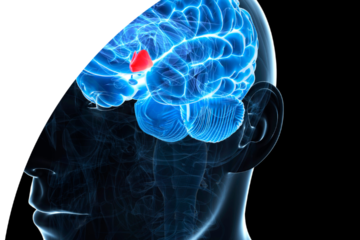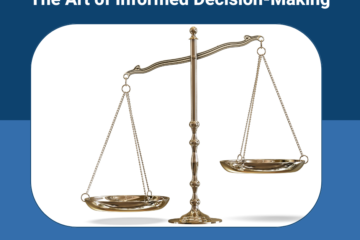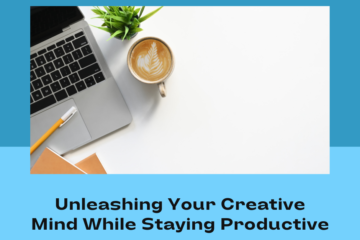
Introduction
In a world full of information and driven by new ideas, it’s more important than ever to be able to think critically. Critical thinking isn’t just a skill; it’s also an art and a discipline that helps you make good choices based on facts and experience. This blog post will try to explain what critical thinking is, what kind of mind you need to have to do it, and what key skills can help you think more critically.
What Is Critical Thinking?
People use the word “critical thinking” a lot, but what it really means is a structured way of thinking and making decisions. It’s not enough to just gather knowledge; you also need to break it down, figure out what it means, and use it well. Critical thinking means being committed to using reason and proof, questioning assumptions, and carefully evaluating the validity of arguments or ideas.
The Mindset for Critical Thinking
The way you think is the most important part of critical thinking. Let’s look more closely at each point to see why it’s important for building critical thinking skills:
Open-Mindedness
Being open-minded means that you are willing to think about different points of view, even if they are different from your own. This is important for critical thinking because it lets you compare different ways of looking at a problem and how to solve it. Having an open mind can help you notice details and complexities that you might have missed otherwise, which can help you understand the problem better.
Skepticism
Skepticism means that you question the things you hear instead of taking them at face value. This is a key part of critical thinking because it makes you look more closely at the facts, arguments, and assumptions that support any claim. Skepticism doesn’t mean you doubt everything you hear or read. It means you think things through and look for proof to back up or disprove what you hear or read.
Intellectual Humility
Intellectual humility is knowing that you don’t know everything and that your knowledge of any given topic is limited. This way of thinking is important for critical thinking because it makes you open to new ideas and information, which you can then add to what you already know. It also makes you think about your own beliefs and assumptions, which is an important part of critical thought.
Curiosity
Curiosity is the desire to learn more and the willingness to look for new knowledge or challenges. In the context of critical thinking, curiosity leads you to ask questions that go beyond the obvious, to question assumptions, and to understand the bigger picture of any problem. This curiosity can help you do more thorough research and make better choices.
Objectivity
Being objective means judging material based on facts, not on how you feel about it or what you already think about it. Having an objective mind is important for critical thinking because it helps you see things as they are, not as you want them to be. It lets you look at facts and arguments without bias, which is important for making good decisions.
In conclusion, these mental traits are not just good things to have; they are also important parts of critical thinking. They help you learn the skills you need to examine, evaluate, and make things better. By working on these skills, you’ll be able to do well in any critical thought task.
14 Key Skills for Critical Thinking
Each of the 14 skills that are important for critical thinking helps you examine, evaluate, and solve problems in a different way. Let’s look at each one in detail:
1. Information Gathering
This is the first step, where you gather all the important facts, data, and information that will help you think. It can be done through study, interviews, surveys, or any other way that helps you get the information you need. Without correct and enough knowledge, it is not possible to think critically.
2. Observation
Observation is the skill of paying close attention to details. Whether you’re reading a book, watching a situation unfold, or looking at a set of data, observation helps you notice details, patterns, and outliers. This skill is important for getting a full picture of the problem at hand.
3. Inference
Inference is when you use the knowledge you’ve gathered and what you’ve seen to come to a logical conclusion. It’s the skill of putting things together, making smart guesses, and making decisions. Inference is a key part of going from collecting data to getting ideas that can be used.
4. Rationalization
Rationalization is when you back up your views, actions, or conclusions with logical reasons. This skill makes sure that your thought process is clear and that others can follow it. It also helps you see where your own thinking is flawed or biased.
5. Reflection
Reflection means taking a step back to think about what your results mean in a bigger picture. It lets you figure out how true your conclusions are and think about other reasons or points of view. When you think about how you thought, you can often come up with deeper insights and better answers.
6. Creation
Creation is the ability to come up with new ideas, solutions, or points of view by using your critical thinking skills. It requires creativity and new ideas, and it’s often the place where the “value-add” of critical thought is most clear.
7. Classification and Sequencing
This skill is about putting the knowledge you’ve gathered together in a way that makes sense. Classification could mean putting information into different groups, while sequence could mean putting information in an order that makes sense. This order makes it easier to understand and analyze.
8. Comparison and Contrast
This skill helps you figure out what is the same and what is different about things like arguments, ideas, or data sets. By analyzing and contrasting, you can learn more about the problem and make better decisions.
9. Cause and Effect Analysis

Understanding cause and effect is important for figuring out what’s wrong and figuring out what will happen. This skill helps you see how different things affect each other, so you can figure out what the root reasons are and what the possible effects might be.
10. Synthesis
Synthesis is the process of putting together different pieces of information to make a whole that makes sense. This could mean putting together different pieces of data into a single idea or combining different solutions to make one that works better.
11. Evaluation
Evaluation is the skill of figuring out whether your own or someone else’s ideas, arguments, or answers are true, reliable, and important. This is where you decide how good the knowledge and arguments you’ve seen are.
12. Prediction
This skill lets you guess what might happen next based on what you know and how things have gone in the past. It’s important for planning and managing risks.
13. Prioritization
In a world where there is a lot of knowledge and things to do, it’s important to figure out what’s most important. Prioritizing helps you focus on what’s most important and use your resources well.
14. Summarization
After studying a lot of information, it’s important to boil it down into short, easy-to-understand summaries. This skill makes it easier and more effective to explain complicated ideas.
Conclusion:
Critical thinking isn’t just a set of skills; it’s also a way of thinking that makes those skills better. Both rely on each other and help each other out. By developing a mind that is open, curious, and logical, you set yourself up to use critical thinking skills well. And as you get better at these skills, you become more open-minded, producing a cycle of learning and making good decisions.
So, the next time you have a hard problem or choice to make, keep in mind that critical thinking is your best tool. If you have the right mindset and skills, you’ll be well on your way to making better choices and living a more logical life.



0 Comments